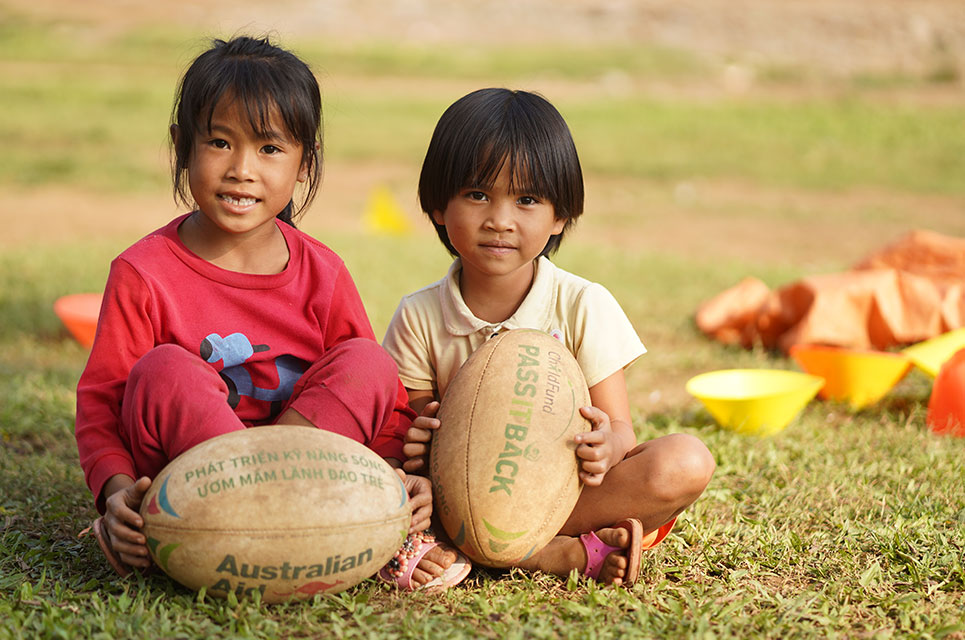Your basket is currently empty.
When 13-year-old Noy* started out in rugby, they thought their identity will be a barrier. As a trans teenager from the Vientiane Capital in Laos, they had always been told that sports and leadership are not for people like them.
“I wanted to break everyone’s biases against people like me,” they said. “I want to show everyone that I can be a leader in the classroom, as well as in rugby.”
When Noy first started out playing rugby, they said they got ridiculed a lot. “They called me ‘ladyboy’ all the time. Other players said ladyboys are weak and could bring down the team. They said these things to me every session,” they shared. “That’s why I was grateful when my coach intervened.”
“It is not right to tell Noy that they cannot play sports or call them ‘ladyboy’ because Noy has a name. Everyone in the team must practice respect and have solidarity in order to be together. As a Coach I cannot ignore this behaviour because it makes Noy feel bad,” the Coach* had told the other players.
According to the Coach, this is something that every coach in ChildFund’s rugby partnerships must do to ensure that rugby is a sport for all.
“Everyone has equal rights. Everyone can play rugby whether they are fat, thin, tall, short, woman, man, transsexual or non-binary,” said the Coach. “We have rugby values that all coaches must follow, and coaches must be a role model for all the players in their teams as well as for people in their communities.”
In rugby practice, Noy learned many new things. Aside from rugby skills such as passing the ball, attacking, defending, pulling tags, they also learned essential life skills, which they can apply to their daily life.
Noy and their teammates also learned more a lot about inclusion. One day after practice, the Coach sat down with them and discussed the importance of including everyone in the activities and giving everyone equal opportunities. After the discussion, the Coach let the team put together rules that they wanted to apply to the team.
“There were many rules that were suggested, such as, do not tease each other during practice, wear a training shirt every session, and most importantly, do not ridicule or insult each other,” the Coach recalled.
After the players had better understanding of equality and inclusion, and after setting up the rules, it became less stressful for Noy when practicing that they worked even harder. The Coach also noticed that Noy was very diligent and was very helpful in managing the team. The Coach was so impressed that they wanted Noy to be the team captain.
“I am happy that all my hard work had been paying off,” said Noy. “Aside from my teammates accepting me and respecting me for who I am, I can also show the people in my community, at school, in my neighbourhood that anyone can be good in rugby and, most importantly, anyone can be a leader — not just the straight and masculine males. People like me can lead, too.”
*Names are withheld to protect the teenager in this story
ChildFund Rugby partners with the Lao Rugby Federation (LRF) in Laos. This interview was courtesy of LRF.

